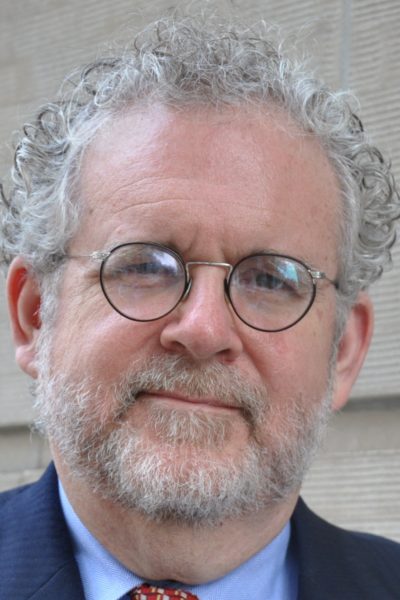If we leave religion out of our national conversation, we end up with a vapid conversation that doesn’t address the deepest realities that move most of the people in this country.
As the Christmas season draws to a close, and the Yule Blog moves toward its close for another year, I find myself looking back over this short period of intense religion writing and thinking about how writing on religion is and is not like writing on other controversial topics.
There’s no doubt in my mind that it’s important to write about religion. Many people, both religious and non-religious, are affected by the religious beliefs and cultures around them; few of us know enough about how religion works and how different religious faiths and traditions shape the worldviews of the people and nations with whom we interact. More, religious questions touch us at our core. If we exclude the deepest issues of all from our public discourse, we end up with a desiccated and artificial public conversation. Worse, leaving religion out of the discussion sends a signal, not very subtly, to young people and others that religion isn’t really that important anyway.
But it’s also true that writing about religion has its perils. One is that religious writing stirs up powerful and sometimes angry feelings. There’s a reason why our grandmothers told us never to discuss politics and religion at the dinner table. I’ve tried to make the Yule Blog as irenic as possible, and while not every reader thinks I’ve succeeded, one of the really rewarding experiences I’ve had with readers over the years is hearing from the so many Muslims, Jews, and non-believers who’ve found these posts helpful.
But there’s an even more dangerous pitfall of religious writing: hypocrisy. There is nothing our society likes better than to mock the pretentiously self-righteous when the lies come unglued and the feet of clay are laid bare. The famous televangelist caught in a No-Tell Motel with a lady not his wife, the family values spokesman caught in a pay-to-play tryst with a person of an inappropriate gender, the ostentatious teetotaler arrested on a DUI, the priest or the pastor who abuses a religious position to seduce vulnerable people who’ve come to the church for protection: our whole society dissolves into righteous indignation, gales of laughter, and malicious glee as yet another plaster saint gets revealed as just another sinner. One can only guess what biblical prophets like Nathan, Elijah, and Jeremiah would have said about some of President Donald Trump’s public and private acts; that has not been the path chosen by a fair number of American religious leaders who have uncritically cheered him on.
The ”Me Too” scandals of the last few years have shown us that hypocrisy is a bipartisan disease. Movie producers and other powerful figures who long positioned themselves as promoters of progressive politics were revealed to use their show business power to obtain sexual favors from those lower down the Hollywood food chain. A convicted sex offender with a long history of sex with underaged girls enjoyed the friendship and support of powerful friends on both sides of the Atlantic. In 2018 a cruel light fell on yet another group of hypocrites: “progressive” professors in the academy who have used their positions to pressure their students and graduate assistants into performing sex acts. In one particularly notorious case, leading feminists wrote in defense of the alleged abuser, a highly regarded feminist theorist. Hypocrisy is bipartisan, and is found among the virtue-signaling avatars of “progressive values” as much as among the ranks of those who ostentatiously endorse “traditional values.”
Your jittery blogger, no freer from the seven deadly sins than many other aging American Baby Boomers, can’t help but feel a bit nervous stepping into this dangerous space. What gives me the right to speak to others about what is true, or beautiful, or good? Is my own conduct so exemplary, my spiritual development so advanced that I should be telling everyone else how it’s done?
There’s an instinct to sit down and shut up about anything related to morals to avoid all risk of hypocrisy. And that instinct has some backing. Take for example the words of Jesus as reported in the King James Version of the Gospel of Luke (6:42): “How canst thou say to thy brother, Brother, let me pull out the mote that is in thine eye, when thou thyself beholdest not the beam that is in thine own eye? Thou hypocrite, cast out first the beam out of thine own eye, and then shalt thou see clearly to pull out the mote that is in thy brother’s eye.”
Clean up your own yard first, then join the neighborhood improvement committee.
Fair enough, and a casual glance around my moral front yard reveals a couple of dumpsters worth of rubbish that needs to be cleared away. That’s just what I see; I am sure that my friends, colleagues, and family know about many other shortcomings that my own narcissism and blindness prevent me from seeing. It’s easier to acknowledge this than to change it; one makes progress over time, but it’s painfully slow. At best, I’m in the state Gertrude Behanna describes in The Late Liz: “Oh Lord, I ain’t what I wanta be. Oh Lord, I ain’t what I oughta be—and Oh Lord, I ain’t what I’m gonna be. But Thanks Lord, I ain’t what I USED TO BE!—Amen.”
But if only perfect people with unblemished pasts were allowed to write about faith and morals, nobody will ever say anything on the subject. Parents wouldn’t try to teach their kids right from wrong; teachers wouldn’t try to help students build moral character. No minister, rabbi, imam, or priest would stand before a congregation to preach a sermon. No Buddhist monk would give advice to the faithful; no Sufi master would counsel disciples on how to approach God.
For some, like the group of atheists who rent billboards around Christmas to denounce religion as a scam, if a sudden silence were to fall over all the pulpits in the world, it would be very good news. But before too much time passed, even the most intemperate atheists would, I think, begin to notice that something was wrong.
Morality isn’t a private affair. Your personal morality is your own choice and your own responsibility, but the consequences of those choices matter much more to other people—and their choices matter much more to you—than we sometimes remember. Society really does depend on the imperfect virtue of its members. Self-restraint and moral behavior, even only realized in part, really are the foundations of liberty. If too many people do the wrong things too many times, nothing can protect us from the consequences.
The weaker the hold of virtue on a people, the stronger the state needs to be. If people don’t voluntarily comply with, for example, the tax codes, the enforcement mechanisms of the government need to be that much stronger. If more people lose their moral inhibitions against theft, and against using violence against the weak, then society has to provide a stronger, tougher police force—and give them more authority under less restraint.
Yet at the same time the state becomes stronger, it loses control of itself. When the moral tone of a people declines, bureaucrats and the police are not exempt from the decay of morals. Perhaps a stratum of high-minded elites and civil servants can keep up a moral tone that is significantly higher than the declining standard around them, but lesser officials and the police will reflect societal norms. They will steal; they will abuse their authority; they will manipulate the processes of the state to serve themselves and their favored clients. The courts become corrupt; the security services link up with the crime syndicates. Night falls.
This is not some abstract fear; history and the world today are full of places where the collapse of moral values blights daily life and undermines the prospects for development. I’ve been to many countries where nobody trusts the courts, the police, the politicians, or the journalists. None of these countries is a nice place to be, and more than anyone else it is the poor—those who most need the state and most need justice—who suffer the accumulated consequences of the moral failures of their society.
Sadly, people do not spontaneously choose to behave like angels. Virtue has to be cultivated and developed. Young people have to be persuaded, cajoled, admonished, and, above all, inspired to seek wisdom, self-control, a life of service, and all the other virtues that are necessary for our civil lives as well as for the fullest development of our true selves. Older people have to be reminded of their ideals, encouraged to live up to them, and to continue fighting the good fight through the long years of adulthood and on into the twilight.
For some people, reason, commonsense, and a strong innate moral constitution make it possible to live at least an apparently decent and useful life without the comforts and restraints of religion. But for many more, only the feelings of awe, gratitude, and fear occasioned by the awareness of a Creator can give them the strength and will to set out on the earnest and difficult road of struggle on the path to a moral life. More, that inner sense needs to be refreshed: people need to hear the message expressed in compelling terms, and they need to hear it again and again through a lifetime.
All this can only happen if a lot of people who are still fighting their own private moral battles stand up on their hind legs in public and praise those virtues that they have not fully attained. The recovering alcoholic has to tell the newcomer that there is hope for a better future—even if nobody knows better than a recovering alcoholic how easy it is to take that beckoning drink. The pastor has to encourage couples in the congregation to strive to fulfill the ideal of a faithful marriage, even if his or her own marriage hasn’t been spotless. The intellectual, struggling with questions and doubts about the meaning of faith, must share the best case for faith with a wider audience along with those honest struggles—or no one will benefit from a lifetime of study and reflection.
Does this mean that I’m arguing for a world of morality based on systematic hypocrisy? G.K. Chesterton’s father, I once read, never went to church himself but always carried a Prayer Book on Sundays to set a good example for the lower orders. Would we be any better off if we added hypocrisy to the lengthening list of our social sins?
It’s not that bad. There is a line, I think, that separates the posturing hypocrite from the honest (but flawed) advocate for morals and faith. There is a difference between the honest advocacy of hope and the self-glorification of a moral poseur—even if nobody in this business has completely clean hands.
In any case, developing a sensible, honest, and penetrating discourse about corrosive human failings and their social consequence is a job that simply has to be done, particularly in a society like ours where the cultures of desire and indulgence run so rampant. I’m not thinking just or even primarily of sex, though this riveting Atlantic essay on the effects of internet pornography on our society provides much food for thought. I’m thinking about a culture of restraint and virtue that prevents (at least some) bankers from ripping off their clients and the government, that keeps the military honest and loyal to their oaths, that ensures policemen think twice before pulling the trigger, that holds politicians back from the worst kinds of demagoguery and dirty tricks—and that punishes those who don’t.
Let’s not over-dramatize or fall into moral panic. Our national culture is not going entirely downhill. The wide and deep hatred of slavery and repugnance against racism that exists in our culture, for example, is a real improvement over the past. There are some other ways in which we seem to be a less brutal, more caring society than we once were. But the signs overall are not good. The social tolerance for greed and self-indulgence that we’ve developed, the prevalence of materialism, the debasement of popular culture, the unscrupulous exploitation of human sexuality for commercial purposes: these are not making us happier, freer, or, as a society, more just. One doesn’t want to foam at the mouth and go all Elmer Gantry about it, but if nobody starts putting sandbanks on the levee, things could get ugly around here fast.
The real point of writing about faith, though, isn’t to shore up the moral underpinnings of the civil order. It’s to integrate your deepest convictions into the work you do as a writer and thinker. Faith shapes the way I think about the world and the future of our species; I wouldn’t be doing my job as a political and social analyst if I didn’t make that clear. It’s both important to your clarity of thought as well as a part of the transparency you owe to your readers to share or at least to explain the ideals and the beliefs that matter most and allow you to make sense of the world, and to let readers get a better look at the heart of your vision.
This annual 13-day stint as a faith blogger leaves me morally challenged by the complexities and the ambiguities this work involves. But it’s also left me feeling that this kind of work, somehow, has got to be done. Freedom of expression is one of the most valuable legacies that we as a people possess. That freedom isn’t much good if you don’t use it to communicate the things that move you most profoundly.
And if we leave religion out of our national conversation, we end up with a vapid conversation that doesn’t address the deepest realities that move most of the people in this country. If religion disappears from our educational institutions and from the arts, our cultural life will become increasingly superficial and fragile. This might not matter so much if we lived in a time of profound peace and calm, but we don’t. The problems we face today can’t be addressed constructively without getting into the deep stuff and asking the hardest questions about the things that matter most.







 Live in the DC area? Sign-up for Providence's in-person events list!
Live in the DC area? Sign-up for Providence's in-person events list!